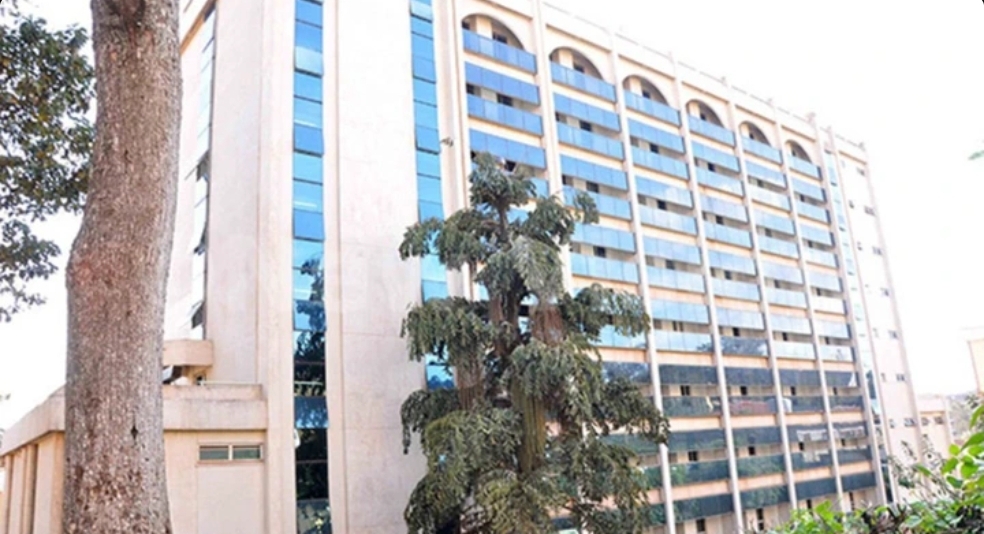High Court upholds Equity Bank’s $10m loan against Simbamanyo, dismisses fraud claims

Simbamanyo house which was acquired by tycoon Sudhir Ruparelia.
The Commercial Division of the High Court has dismissed a high-profile legal challenge filed by Simbamanyo Estates Limited, ruling that the $10 million post-import loan facility extended to Equity Bank was lawful, enforceable and executed without fraud or undue influence.
The ruling, delivered on July 25, 2025, by Justice Harriet Grace Magala, brings an end to a years-long legal battle that centered on Simbamanyo’s mortgaged properties—Simbamanyo House and Afrique Suites Hotel—which were sold off in 2020 after the company defaulted on loan repayments. In her 67-page judgment, Justice Magala firmly concluded that the transactions were legally structured and did not violate the Financial Institutions Act or any banking regulations in Uganda.
“The court finds that the 1st and 2nd defendants did not conduct financial institution business in Uganda unlawfully. The syndicated loan arrangement was a permissible and commercial necessity,” Justice Magala ruled.
The dispute dates back to 2012 when Simbamanyo secured a $6 million syndicated loan from Equity Bank Uganda and Equity Bank Kenya. In 2017, the company obtained a $10 million bridge loan from Mauritius-based Bank One, backed by a standby letter of credit issued by Equity Bank Kenya. When Simbamanyo defaulted on its obligations, Equity Bank Kenya triggered the standby letter and made the payment to Bank One, effectively activating the post-import loan with Equity Bank Uganda.
Simbamanyo challenged the arrangement, arguing that Equity Bank Uganda was not the designated lender under the facility and that no formal utilization request had been submitted to authorize the disbursement. The court dismissed this line of argument, stating that the terms of the agreement made the utilization request optional.
“The utilization request under clause 5.1(a) was optional, not mandatory. The facility was self-executing upon default and encashment of the standby letter of credit,” the judge ruled.
Simbamanyo also claimed the loan violated the Financial Institutions Act, alleging that Equity Bank Kenya and Bank One were conducting banking business in Uganda without licenses. Justice Magala disagreed and explained that the Act only prohibits deposit-taking by unauthorized entities within Uganda, not borrowing from foreign banks.
“The Financial Institutions Act was never intended to forbid borrowing from foreign entities. Had Parliament intended such a restriction, it would have said so explicitly,” she stated.
The court further defended the syndicated nature of the loan, explaining that it was structured to prevent Equity Bank Uganda from exceeding regulatory lending limits. “The plaintiff and the 2nd defendant entered into a syndicated loan facility, which was necessary because the 1st defendant would otherwise exceed its credit and exposure limit,” Justice Magala said.
Regarding whether Simbamanyo was properly notified before the standby letter was triggered, the court emphasized that the legal obligations were clearly stated in the agreement and did not require the borrower’s consent or awareness at the time of execution.
“A standby letter is a separate security agreement. Once triggered, the issuing bank is obligated to pay regardless of the borrower’s awareness,” the ruling stated.
Simbamanyo had also alleged fraud, undue influence, and breach of fiduciary duty in the execution and enforcement of the loan facilities. However, the court found no evidence to support these claims.
“There was no fraudulent misrepresentation, undue influence, or breach of fiduciary duty proved against the defendants,” Justice Magala ruled.
The judge further noted that the absence of a formal written demand before enforcing the loan did not prejudice Simbamanyo, since the company was fully aware of the timelines, terms, and its own obligations.
“The absence of a written demand did not prejudice the plaintiff, who was aware of the facility timelines and obligations,” she added.
The ruling effectively upholds the sale of Simbamanyo House and Afrique Suites Hotel, which were auctioned after the company failed to meet its debt obligations. Simbamanyo House was acquired by Meera Investments, a company owned by Tycoon Sudhir Ruparelia, while Luwaluwa Investments purchased Afrique Suites. The sales sparked widespread public and legal debate and were followed by a string of court applications filed by Simbamanyo in efforts to reverse the transactions.
Those efforts have now been exhausted, as the Commercial Court found in favor of Equity Bank Uganda, Equity Bank Kenya, and Bank One Limited on all substantive issues. The decision not only validates the banks’ enforcement actions but also signals judicial support for cross-border syndicated lending structures within Uganda’s legal framework.
With this ruling, legal analysts say the matter is now conclusively settled, barring any potential appeal—although many believe the prospects of a successful challenge are now exceedingly slim.
Justice Magala’s decision marks the final chapter in a legal battle that spanned over a decade and involved multiple court appearances, appeals, and even political interventions. It offers both clarity and precedent for how Ugandan courts will handle similar disputes involving foreign-backed commercial loans and the enforcement of credit instruments such as standby letters.
For Equity Bank, the ruling is a significant vindication of its position and conduct. For Simbamanyo, it marks the final legal defeat in a long campaign to regain the properties that once symbolized its real estate empire



0 Comments